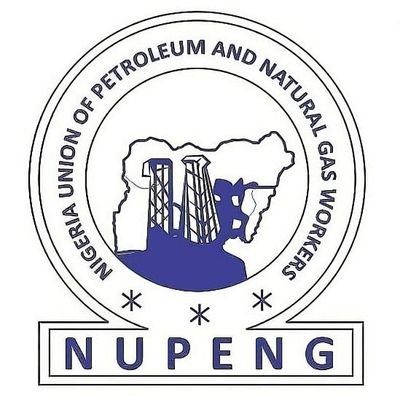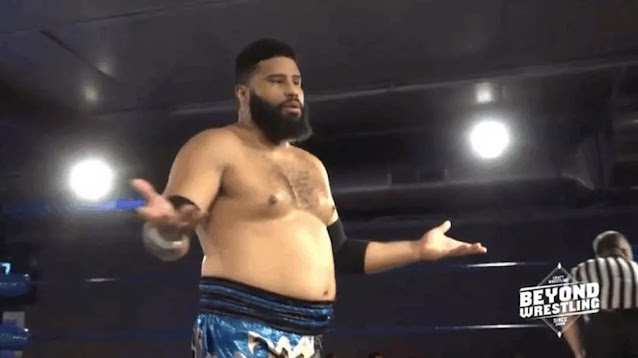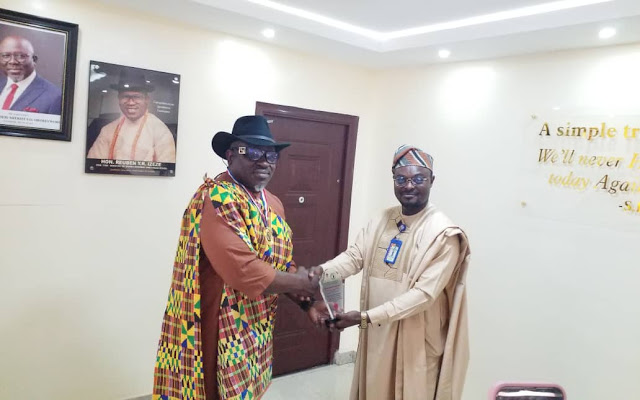Nigeria’s oil and gas industry, a cornerstone of the nation’s economy, is on the brink of a significant disruption as the Nigeria Union of Petroleum and Natural Gas Workers (NUPENG) has announced a nationwide strike set to commence on Monday, September 8, 2025. The strike, driven by a contentious dispute with Dangote Refinery, has raised alarms among marketers, industry experts, and stakeholders who warn of severe consequences for the downstream petroleum sector and the broader Nigerian economy. The escalating tensions, centered around allegations of anti-union practices and monopolistic tendencies by the Dangote Group, have drawn sharp criticism from labor unions, regulatory bodies, and civil society, while also prompting calls for urgent intervention from the federal government. As the nation braces for potential fuel shortages and economic instability, the stakes could not be higher for all involved parties.
Background: The Role of NUPENG and Dangote Refinery in Nigeria’s Oil Sector
To understand the gravity of the situation, it is essential to examine the roles of the key players involved. NUPENG, one of Nigeria’s most influential labor unions, represents workers across the oil and gas industry, including petroleum tanker drivers, pump attendants, and other critical personnel in the downstream sector. The union has long been a vocal advocate for workers’ rights, collective bargaining, and fair labor practices, often wielding significant influence through industrial actions such as strikes. These actions can disrupt fuel distribution nationwide, given the union’s control over the logistics of petroleum product transportation.
Dangote Refinery, on the other hand, is a transformative force in Nigeria’s energy landscape. Commissioned in May 2023, the $20 billion facility in Lagos is Africa’s largest oil refinery, with a production capacity of 650,000 barrels per day. Hailed as a game-changer for Nigeria’s energy security, the refinery aims to reduce the country’s dependence on imported fuel, stabilize domestic supply, and create jobs. However, its ambitious plans, particularly its innovative approach to fuel distribution, have sparked controversy among traditional stakeholders in the downstream sector.
At the heart of the current dispute is Dangote Refinery’s decision to import 10,000 compressed natural gas (CNG)-powered trucks for direct fuel distribution to retailers, bypassing existing logistics networks dominated by NUPENG-affiliated tanker drivers. This move, pitched by Dangote as a cost-saving and environmentally sustainable strategy, has been met with fierce resistance from the union, which accuses the refinery of anti-union practices and monopolistic ambitions that threaten the livelihoods of thousands of workers.
The Genesis of the Conflict
The conflict between NUPENG and Dangote Refinery began to surface in June 2025, when Aliko Dangote, Chairman of the Dangote Group, announced plans to deploy 4,000 CNG trucks for fuel distribution, a figure later increased to 10,000. While the initiative was initially welcomed by some stakeholders for its potential to enhance efficiency and reduce logistics costs, concerns quickly emerged about its broader implications. NUPENG, alongside the National Association of Road Transport Owners (NARTO), sought dialogue with Dangote to address these concerns, particularly regarding the employment conditions of drivers recruited to operate the CNG trucks.
According to NUPENG, the refinery’s recruitment process for these drivers included a condition that they sign undertakings not to join any trade union, a practice the union deems unconstitutional and in violation of international labor conventions. Section 40 of the Nigerian Constitution guarantees the right to freedom of association, including the right to form and join trade unions, while International Labour Organization (ILO) Conventions 87 and 98, ratified by Nigeria in 1960, protect workers’ rights to organize and engage in collective bargaining. NUPENG argues that Dangote’s policy not only undermines these rights but also sets a dangerous precedent for labor relations in Nigeria’s private sector.
The union’s leadership, led by National President Williams Akporeha and General Secretary Afolabi Olawale, has accused Dangote Refinery of pursuing a deliberate strategy to marginalize workers and monopolize the downstream petroleum sector. In a statement issued on September 6, 2025, NUPENG described the refinery’s practices as “modern slavery” and “economic sabotage,” alleging that Aliko Dangote and his cousin, Sayyu Dantata, who is involved in the recruitment process through MRS Energy, are prioritizing profit over workers’ welfare and competitive market dynamics. The union claims that the refinery’s distribution model threatens to displace thousands of tanker drivers, marketers, and other stakeholders who rely on the traditional supply chain for their livelihoods.
Support from PETROAN and the NLC
The Petroleum Products Retail Outlets Owners Association of Nigeria (PETROAN) has thrown its weight behind NUPENG, announcing a three-day suspension of fuel lifting and dispensing starting Tuesday, September 9, 2025, in solidarity with the union’s strike. PETROAN’s National President, Dr. Billy Gillis-Harry, has warned that Dangote’s aggressive business strategies could devastate smaller players in the downstream sector, including private depot owners, modular refinery operators, marketers, and transporters. He drew parallels to the cement industry, where Dangote’s dominance allegedly led to market consolidation and job losses, cautioning that a similar outcome in the petroleum sector could trigger widespread unemployment and economic instability.
The Nigeria Labour Congress (NLC), the umbrella body for trade unions in Nigeria, has also voiced strong support for NUPENG, framing the dispute as an assault on the entire labor movement. In a statement issued on September 6, 2025, NLC President Joe Ajaero accused the Dangote Group of a broader pattern of anti-union practices across its cement, sugar, and flour subsidiaries, including paying some of the lowest wages in the oil and gas sector, casualizing workers, and creating unsafe working conditions. The NLC has placed its affiliates on “red alert,” signaling readiness to mobilize a nationwide strike if Dangote does not reverse its policies. Ajaero emphasized that the dispute is not just about NUPENG but about protecting the constitutional and international rights of all Nigerian workers.
Opposition and Diverging Views
Not all stakeholders support NUPENG’s strike action. The Independent Petroleum Marketers Association of Nigeria (IPMAN) and a faction of the Petroleum Tanker Drivers (PTD) branch have distanced themselves from the strike, highlighting internal divisions within the downstream sector. IPMAN’s National Executive Council, led by Douglas Iyike, dismissed a strike threat issued by its Western Zone, stating that only the national body has the authority to declare such action. IPMAN argued that the Petroleum Industry Act (PIA) allows companies like Dangote to own refineries, trucks, and retail outlets, suggesting that the refinery’s distribution model aligns with legal provisions for private sector participation.
Similarly, PTD leaders in Warri and Port Harcourt, Blessing Dafinone and Joseph Dagogo-Jack, rejected NUPENG’s strike directive, calling it “insensitive” and “callous.” They argued that union membership should remain voluntary and praised Dangote’s CNG truck initiative as a progressive step toward modernizing fuel distribution. The Direct Trucking Company Drivers Association (DTCDA), which NUPENG has disowned as a management-inspired group, also opposed the strike, urging drivers to prioritize dialogue over disruption.
The Economic Rights Activists (ERA), a civic group, has condemned the planned strike, arguing that it would inflict severe hardship on ordinary Nigerians rather than corporate entities. ERA’s Executive Director, Dr. Josiah Inuwa, warned that a strike in the petroleum sector could lead to skyrocketing transport fares, soaring food prices, power outages in hospitals, and the collapse of small businesses. He accused NUPENG, PETROAN, and the NLC of risking Nigeria’s fragile economic recovery and potentially serving the interests of cartels that profit from the country’s reliance on imported fuel. ERA called for all parties to return to the negotiation table and urged the National Assembly to investigate allegations of sabotage by vested interests in the fuel import market.
Government’s Response and Calls for Intervention
The federal government has responded to the looming crisis with an urgent appeal to NUPENG to call off the strike. Labour Minister Muhammad Maigari Dingyadi emphasized the potential economic losses, estimating that even a one-day strike could cost the nation billions of naira and cause widespread hardship. A conciliation meeting, brokered by the government, is scheduled for Monday, September 8, 2025, to address the dispute and avert a fuel supply crisis. The minister also called on the NLC to withdraw its “red alert” and engage in constructive dialogue.
PETROAN and IPMAN have joined the chorus of voices urging President Bola Tinubu, the Minister of State for Petroleum Resources, Heineken Lokpobiri, and the Nigerian Midstream and Downstream Petroleum Regulatory Authority (NMDPRA) to intervene. Stakeholders have also appealed to the Group CEO of the Nigerian National Petroleum Company Limited (NNPC Ltd.), the Director-General of the Department of State Services (DSS), and the Inspector General of Police to ensure a swift resolution. The NMDPRA, in particular, has been criticized by NUPENG and the NLC for failing to enforce provisions of the Petroleum Industry Act that promote competition and prevent monopolistic practices in the downstream sector.
Potential Economic and Social Impacts
The implications of a NUPENG-led strike are far-reaching, given the critical role of the downstream petroleum sector in Nigeria’s economy. Fuel scarcity, a recurring challenge in the country, could exacerbate existing economic pressures, including inflation, high transportation costs, and supply chain disruptions. Past strikes, such as the 2012 fuel subsidy protests and the 2020 industrial actions, cost the economy billions of naira daily and deepened recessionary pressures, serving as a stark reminder of the stakes involved.
Small business owners, transport operators, and ordinary citizens are likely to bear the brunt of any disruption. A prolonged strike could lead to fuel queues, increased black-market activity, and higher prices for goods and services, further straining the livelihoods of Nigerians already grappling with economic challenges. Hospitals reliant on fuel for power generation could face outages, while schools, markets, and industries could experience significant disruptions.
Moreover, the strike threatens to undermine Nigeria’s push for energy self-sufficiency through the Dangote Refinery, a project seen as a critical step toward ending decades of reliance on imported fuel. Critics of the strike, including ERA, argue that disrupting the refinery’s operations could delay these benefits and play into the hands of cartels that profit from the status quo. Conversely, NUPENG and its supporters contend that protecting workers’ rights and preventing monopolistic control are essential for ensuring a fair and sustainable energy sector.
Critical Analysis: Balancing Innovation and Labor Rights
The dispute between NUPENG and Dangote Refinery raises fundamental questions about the balance between innovation, economic efficiency, and workers’ rights. Dangote’s CNG truck initiative aligns with global trends toward sustainable energy and cost-effective logistics. By bypassing traditional middlemen, the refinery aims to reduce distribution costs, lower fuel prices, and minimize environmental impact through cleaner fuel alternatives. These objectives resonate with Nigeria’s broader goals of energy security and economic diversification.
However, the execution of this strategy has sparked legitimate concerns about labor rights and market dynamics. Forcing drivers to forgo union membership as a condition of employment is a clear violation of Nigerian and international labor laws, undermining the principles of collective bargaining and worker representation. The Dangote Group’s alleged history of anti-union practices in other sectors, as highlighted by the NLC, further fuels skepticism about its commitment to fair labor practices.
At the same time, NUPENG’s decision to resort to a nationwide strike without exhausting all avenues for dialogue has drawn criticism for its potential to harm ordinary Nigerians. The union’s rhetoric, while rooted in valid concerns about job security and workers’ rights, risks alienating stakeholders who see the refinery as a national asset. The internal divisions within NUPENG, particularly the opposition from PTD and DTCDA, suggest that not all members are aligned with the strike’s objectives, complicating the union’s position.
The government’s role in this crisis is equally critical. The NMDPRA’s apparent inaction in addressing allegations of monopolistic practices has fueled perceptions of regulatory capture or inefficacy. The Petroleum Industry Act provides a framework for promoting competition and protecting stakeholders, but its enforcement remains a challenge. President Tinubu’s administration, already navigating a fragile economic recovery, faces pressure to mediate a resolution that balances the interests of labor, industry, and the public.
The Way Forward: Dialogue and Reform
As Nigeria teeters on the edge of a potential fuel crisis, dialogue remains the most viable path to resolution. The conciliation meeting scheduled for September 8, 2025, offers a critical opportunity for all parties to address grievances and find common ground. Dangote Refinery must demonstrate a commitment to fair labor practices by revising its recruitment policies to comply with constitutional and international standards. Allowing drivers to join unions and engage in collective bargaining would not only defuse tensions but also enhance the refinery’s reputation as a responsible corporate citizen.
NUPENG, for its part, should consider suspending the strike pending the outcome of negotiations, prioritizing the economic well-being of Nigerians. A collaborative approach, involving the NLC, PETROAN, IPMAN, and regulatory bodies, could lead to a framework that protects workers’ rights while supporting innovation in the downstream sector.
The government must also take proactive steps to strengthen regulatory oversight. The NMDPRA should leverage its authority under the Petroleum Industry Act to investigate allegations of monopolistic practices and ensure a level playing field for all stakeholders. Additionally, the National Assembly could play a role in fostering transparency by summoning key parties to public hearings, addressing concerns about cartels and vested interests in the fuel import market.
Conclusion
The impending NUPENG strike and the broader conflict with Dangote Refinery represent a critical juncture for Nigeria’s downstream petroleum sector. The dispute encapsulates the tensions between economic modernization, labor rights, and market competition in a nation striving for energy self-sufficiency. While Dangote’s vision for a vertically integrated fuel distribution model holds promise for efficiency and sustainability, it must not come at the expense of workers’ rights or fair competition. Similarly, NUPENG’s advocacy for its members is justified, but the union must weigh the broader economic consequences of its actions.
As stakeholders await the outcome of the government-brokered conciliation meeting, the urgency of finding a balanced solution cannot be overstated. Nigeria’s oil and gas sector, long plagued by inefficiencies and external dependencies, stands at a crossroads. The resolution of this crisis will shape not only the future of the downstream sector but also the nation’s economic trajectory and the welfare of its citizens. For now, all eyes are on the key players—NUPENG, Dangote Refinery, and the federal government—as they navigate this high-stakes showdown.






